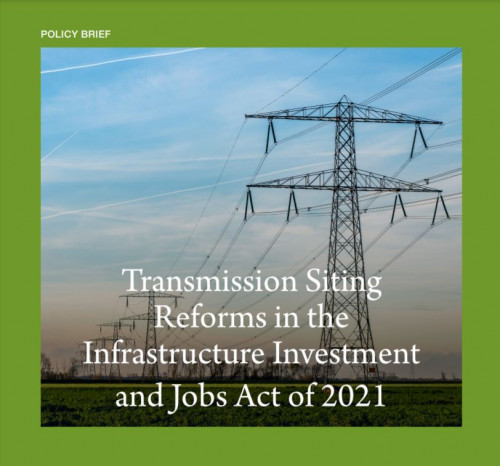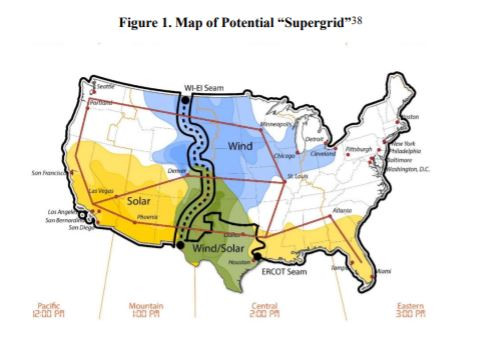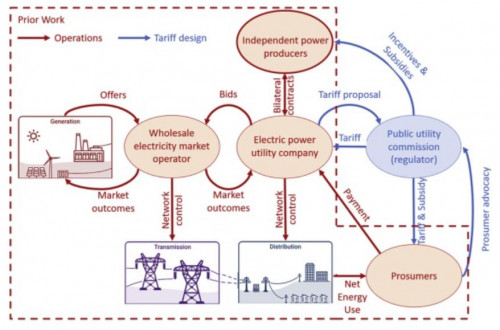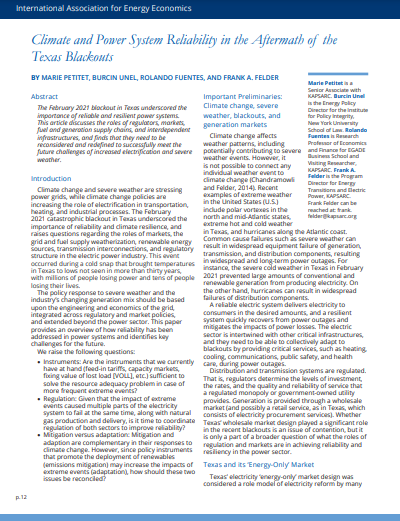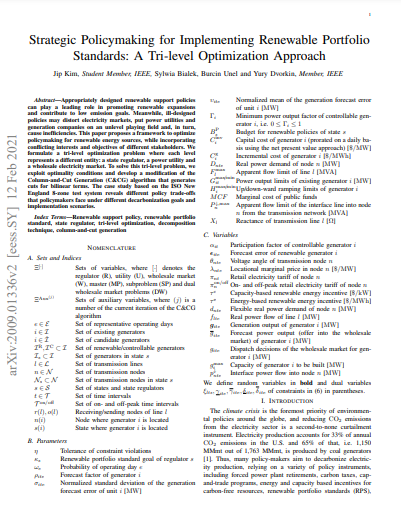-
Transmission Siting Reforms in the Infrastructure Investment and Jobs Act of 2021
This policy brief highlights Infrastructure Investment and Jobs Act (IIJA) provisions that are relevant to transmission siting, summarizes the changes they effectuate, and describes important implications of those changes for efforts to develop more interstate transmission capacity. It then offers a brief assessment of the IIJA’s overarching significance to such efforts, including by comparing them to a more ambitious legislative alternative.
-
Building a New Grid without New Legislation: A Path to Revitalizing Federal Transmission Authorities
Published Ecology Law Quarterly
In the absence of legislation, critical long-distance transmission can be developed by applying existing federal legal authorities. A number of important regulatory and commercial measures have been proposed, including streamlining transmission planning, upgrading existing transmission system components, putting transmission lines underground, and using existing rights-of-way from highways and railroads. Even if these solutions are adopted, however, state siting requirements may prove an important obstacle to developing an efficient, national transmission grid. So, this paper examines legal authorities already available to the Department of Energy and the Federal Energy Regulatory Commission to develop the interstate transmission capacity crucial to the energy transition.
-
Modeling Strategic Objectives and Behavior in the Transition of the Energy Sector to Inform Policymaking
in The Electricity Journal
The typical starting point and centerpiece of energy decarbonization is the electric power sector, a large direct GHG emitter. Published in The Electricity Journal, this paper explores what the modeling community should do to inform this transition, including expanding energy market datasets and designing models that incorporate multiple objectives and manifold actors behaving strategically in a framework consisting of large uncertainty, while accounting for the physics of power systems.
-
Climate and Power System Reliability in the Aftermath of the Texas Blackouts
The February 2021 blackout in Texas underscored the importance of reliable and resilient power systems. This article discusses the roles of regulators, markets, fuel and generation supply chains, and interdependent infrastructures, and finds that they need to be reconsidered and redefined to successfully meet the future challenges of increased electrification and severe weather
-
Strategic Policymaking for Implementing Renewable Portfolio Standards: A Tri-level Optimization Approach
Forthcoming
Appropriately designed renewable support policies can play a leading role in promoting renewable expansions and contribute to low emission goals. Meanwhile, ill-designed policies may distort electricity markets, put power utilities and generation companies on an unlevel playing field and, in turn, cause inefficiencies. This paper, forthcoming in IEEE Transactions on Power Systems, proposes a framework to optimize policymaking for renewable energy sources, while incorporating conflicting interests and objectives of different stakeholders.
Viewing all publications in Electricity

